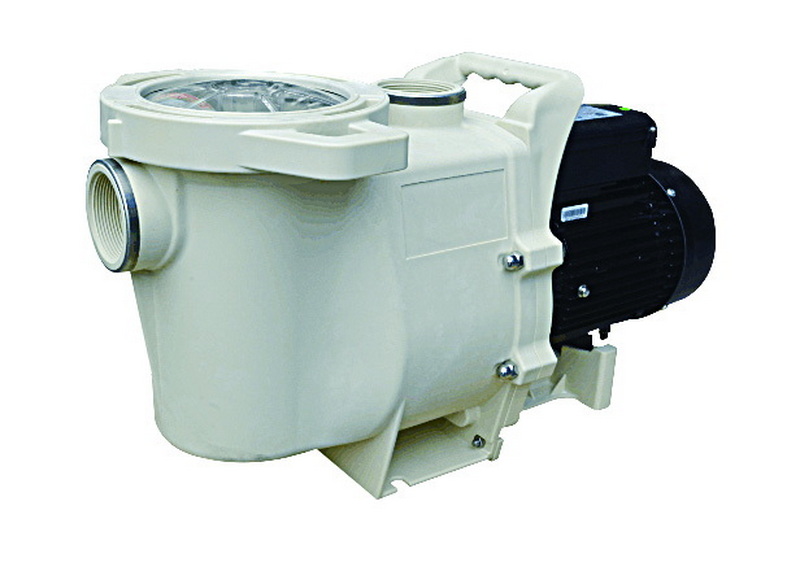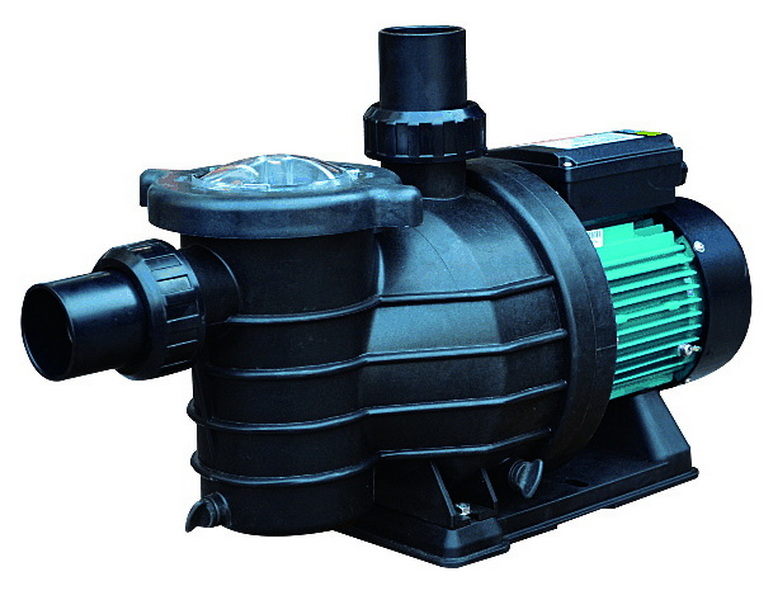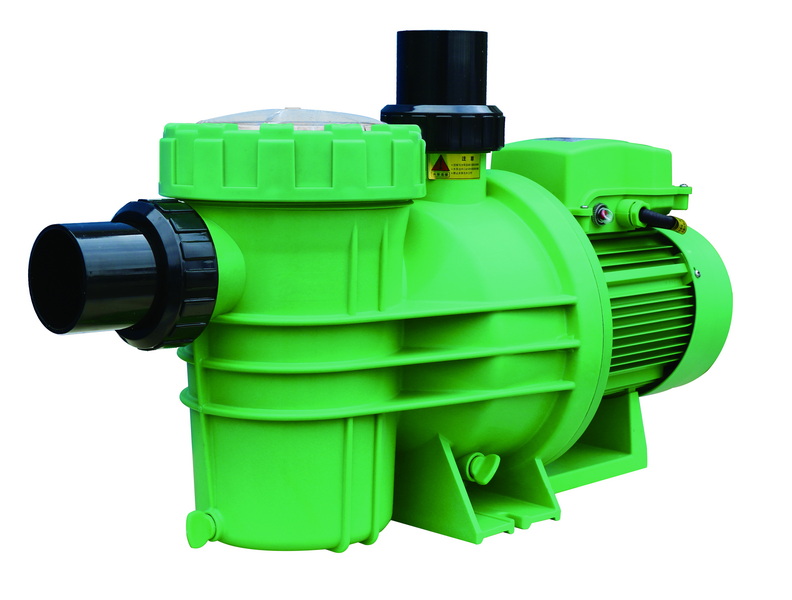Views: 222 Author: Tina Publish Time: 2025-09-26 Origin: Site








Content Menu
● Introduction: What Is a Variable Speed Pool Pump?
● How Does a Variable Speed Pool Pump Work?
● Permanent Magnet Motor Technology
● Energy Savings and Cost Efficiency
● Noise Reduction and Equipment Longevity
● Installation and Compatibility
● Practical Tips for Maximizing Value
● Variable Speed vs Single Speed Pool Pumps
>> 1. How much can be saved on energy with a variable speed pool pump?
>> 2. Is a variable speed pool pump quieter than older models?
>> 3. Does higher cost mean higher maintenance for variable speed pool pumps?
>> 4. Will a variable speed pump work with my existing pool system?
>> 5. Are variable speed pool pumps environmentally friendly?
A variable speed pool pump is an advanced pool filtration device that offers users the ability to precisely control the flow rate and energy consumption of their pool's water circulation system, significantly improving efficiency, cost savings, and environmental impact. This long-form article provides an in-depth exploration of variable speed pool pumps, including their technology, benefits, comparisons to traditional pool pumps, operational tips, relevant images and videos, answered FAQs, and a comprehensive conclusion. Word count is provided at the end, followed by a summary for reference.[1][2][3][4][5][6]

A variable speed pool pump is a water circulation device that uses a permanent magnet motor (PMM), allowing users to program different flow rates for specific pool needs, unlike traditional single-speed pumps that always operate at maximum output. It has become the preferred choice for both residential and commercial pool owners due to its efficiency and flexibility.[4][6][1]
Key Features:
- Programmable speed settings[6][1]
- Advanced motor technology (PMM)[3][4]
- Integrated digital control panels[1]
- Quieter operation[7][6]
- Higher energy efficiency[2][3]
Variable speed pumps operate using digital controls, enabling the circulation system to match flow rate to pool requirements, tasks, or maintenance cycles.[4][1]
- At lower speeds, the pump filters water more effectively, reducing debris and optimizing sanitation.[8][6]
- Higher speeds are used for demanding tasks like vacuuming or running water features.[5][4]
Most variable speed pumps utilize PMM, similar to those found in electric vehicles and medical equipment. These motors offer:
- Up to 90% efficiency (vs. 30-70% for induction motors).[3][4]
- Less energy lost to heat and friction.[8][3]
- Longer lifespan and reduced maintenance.[8]
The pump affinity law explains why running a pump at a slower speed significantly decreases energy usage. When speed is halved, power consumption can decrease by up to eight times, while only reducing flow linearly.[10][11][3]
- Most pool owners see up to 80–90% savings on energy bills after switching to variable speed models.[7][1][3]
- Cost recovery typically occurs within one to two years.[3][7]
- Some utility companies may offer rebates on qualifying pumps.[1][3]

- Continuous slow filtration keeps water moving and prevents stagnation, reducing algae and bacteria growth.[14][6]
- Low-speed operation improves filtration efficiency, helping the pool filter capture more fine debris.[6][8]
- Programmable schedules allow owners to optimize speeds for different times of day and task requirements.[5][6][1]
- Digital automation integration makes advanced pool management simple.[5][1]
- Operating at lower speeds greatly reduces mechanical vibration and motor noise.[13][6][7]
- Lower speeds decrease stress and wear, prolonging pump and system lifespan.[6][8]
- Many regions now require new or replacement pool pumps to be variable speed due to Department of Energy standards.[11]
- Variable speed pumps help meet environmental and energy codes for pools worldwide.[11][3]
- Most modern models are designed for drop-in replacement, simplifying the upgrade from older pumps.[15][4]
- Manufacturers offer models compatible with various pool sizes, plumbing, and automation systems.[2][5][6]
- Program extended low-speed filtration for most of the day and brief higher-speed intervals for cleaning and water features.[10][6]
- Calculate turnover needs to ensure complete water circulation, typically three turnovers per 24 hours.[10][11]
- Monitor and adjust digital settings for optimal sanitation.[5][6]
| Feature | Variable Speed Pump | Single Speed Pump |
|---|---|---|
| Motor Technology | Permanent Magnet Motor cleanenergyconnection | Induction Motor cleanenergyconnection |
| Speed Adjustment | Fully programmable pooltroopers | Fixed RPM only pooltroopers |
| Energy Efficiency | 80–90% savings cleanenergyconnection+1 | Lowest efficiency cleanenergyconnection |
| Noise Level | Very quiet spspoolcareyoutube | Loud youtube |
| Filtration Quality | Superior at low speeds zodiacpoolblog | Average zodiacpoolblog |
| Upfront Cost | Higher cleanenergyconnection+1 | Lower cleanenergyconnection+1 |
| Longevity | Longer lifespan zodiacpoolblog | Shorter lifespan zodiacpoolblog |
| Regulatory Compliance | Required by law in many regionsswimmingpool | Not compliant swimmingpool |
| Smart Control Integration | Yes pooltroopers+1 | No pooltroopers+1 |
- Residential pools of all sizes[11][2]
- Commercial aquatic centers[2]
- Customized OEM solutions for international brands and suppliers
Variable speed pool pumps represent the future of efficient, flexible, and environmentally conscious pool management. By allowing users to precisely control water flow, energy consumption, and filtration quality, these pumps improve both operating costs and water sanitation while providing quieter, longer-lasting performance. For pool owners and industry professionals, the transition to variable speed technology offers measurable financial savings, technical advantages, and compliance with global energy standards. As manufacturing technology evolves, embrace smarter solutions—choose variable speed pool pumps for healthier pools, cleaner water, and a sustainable future.[4][1][6][3][7][5][2]

Variable speed pool pumps can reduce energy costs by 80–90%, with most users recouping investment in one to two years.[3][11][7]
Yes, they are significantly quieter, operating at lower RPMs and producing less vibration and noise.[13][6][7]
No, maintenance is typically reduced due to less wear and tear; longer lifespan and fewer service interruptions are common.[8][6]
Most models can be installed as drop-in replacements, but compatibility should always be checked with manufacturer specs and system requirements.[15][4][2]
Absolutely. Their superior efficiency and lower energy use decrease carbon footprint and meet environmental standards globally.[11][3]
[1](https://pooltroopers.com/blog/variable-speed-motor-pump-vs-single-speed-motor-pump/)
[2](https://www.pentair.com/en-us/products/residential/pool-spa-equipment/pool-pumps/variable-speed-pumps.html)
[3](https://www.cleanenergyconnection.org/article/variable-speed-pool-pumps-really-do-save-you-money-heres-how)
[4](https://www.swimuniversity.com/variable-speed-pool-pumps/)
[5](https://www.pentair.com/en-us/education-support/water-education-center/pool-and-spa-education/variable-speed-and-flow-pump.html)
[6](https://clearcomfort.com/variable-speed-pool-pumps-guide/)
[7](https://spspoolcare.com/blog/benefits-of-variable-speed-pool-pumps/)
[8](https://www.zodiacpoolblog.com/en/2023/march/what-you-need-to-know-about-energy-efficient-pool-pumps)
[9](https://www.youtube.com/watch?v=-GtAZYujBMQ)
[10](https://www.swimmingpoolsteve.com/pages/pools3-3.html)
[11](https://www.swimmingpool.com/blog/comparing-variable-speed-pool-pumps-vs-single-speed/)
[12](https://www.youtube.com/watch?v=bi2EpgISCCA)
[13](https://www.youtube.com/watch?v=l29VxMP9QgM)
[14](https://clearcomfort.com/variable-speed-pump-vs-single-speed-a-comparison/)
[15](https://www.youtube.com/watch?v=f6iMa0YsCuM)
[16](https://www.youtube.com/watch?v=y5_aMFFEu3k&vl=en)
[17](https://www.reddit.com/r/pools/comments/15i78ve/variable_speed_pump_yaynay/)
[18](https://www.reddit.com/r/swimmingpools/comments/14drbrj/please_help_me_understand_variable_speed_pumps/)
[19](https://lesliespool.com/blog/benefits-of-variable-speed-pool-pumps.html)
[20](https://www.reddit.com/r/pools/comments/n9d1k7/variable_speed_vs_single_speed_pool_pump_question/)
This guide explains how to safely increase pressure on a pool pump by restoring healthy water flow. Learn to diagnose low pressure, clean baskets and filters, fix air leaks, adjust valves and pump speed, and know when equipment upgrades or gauge replacement are necessary.<br />
This in‑depth guide explains how much it costs to replace a pool pump, covering typical price ranges, pump types, labor charges, and long‑term energy savings. Learn when to repair vs replace, DIY vs professional options, and how OEM pump and filter solutions can reduce lifetime ownership cost.<br />
Learn exactly how long to run a pool pump daily for crystal‑clear, safe water and lower energy bills. This in‑depth guide explains turnover, seasonal adjustments, single‑ vs variable‑speed schedules, energy‑saving tips, and practical examples, plus answers to common runtime questions.
This in‑depth guide explains the real reasons your swimming pool pump is not working, from power and priming issues to clogged impellers, dirty filters, and motor failures. Learn step‑by‑step troubleshooting, key maintenance tips, and when to repair or replace your pool pump.
Learn how to remove a pool pump motor safely and efficiently with this step‑by‑step guide. Discover the tools you need, how to disconnect power and plumbing, when to call a pro, and how OEM filter and pump solutions can support overseas pool brands and wholesalers.<br />
This article introduces leading Pool Cleaning Equipment Manufacturers and Suppliers in the UK, outlines their key products, and explains how international brands can combine UK distributors with Chinese OEM factories to build competitive, high‑quality private‑label pool cleaning and filtration lines.
This article outlines the leading Pool Cleaning Equipment Manufacturers and Suppliers in America, explains key product categories such as sand filters, pumps, and robotic cleaners, and shows how importers can combine U.S. brands with Chinese OEM partners to build competitive, high‑margin pool equipment portfolios.<br />
This article introduces the European market for pool equipment and accessories, profiles key Pool Cleaning Equipment Manufacturers and Suppliers, and explores OEM opportunities for Chinese factories producing sand filters, pumps, cleaners and LEDs for European brands and wholesalers.<br />
This article profiles top Pool Filter Valve Manufacturers and Suppliers in Canada, including Praher Plastics, global brands like Hayward and Carvin, and leading distributors. It explains key valve types, buying factors, and how foreign OEM factories can partner with Canadian suppliers for complete pool filtration solutions.<br />
Discover top Pool Filter Valve Manufacturers and Suppliers in Korea, from Korea Filter to SEDA, offering innovative multiport valves, OEM services, and eco-friendly designs for global pools. Explore advancements, certifications, and FAQs in this comprehensive guide to superior filtration solutions.
This article introduces leading Pool Filter Valve Manufacturers and Suppliers in Japan and Asia, covering valve types, key Japanese pool brands, OEM opportunities, and application segments. It explains how advanced engineering, strict quality control, and strong visual marketing help exporters win global pool projects.
This article introduces the main types of Pool Filter Valve Manufacturers and Suppliers serving Russia, including local distributors, industrial filter producers, global brands, and Chinese OEM partners. It explains key selection criteria, product ranges, and OEM opportunities for Russian pool projects.<br />
This article introduces the leading Pool Filter Valve Manufacturers and Suppliers in Australia, explains common valve types and technical features, highlights major distributors and OEM opportunities, and offers practical tips for international buyers sourcing compatible filtration valves and systems.
This article introduces Italy’s leading Pool Filter Valve Manufacturers and Suppliers, detailing their technologies, materials, OEM services, and application scenarios. It explains how Italian valves integrate with sand, DE, and cartridge filters and why global brands choose Italian partners for premium pool filtration solutions.<br />
This article introduces the Portuguese market for pool filtration equipment and highlights how local specialists, European brands, and Chinese OEM Pool Filter Valve Manufacturers and Suppliers cooperate to serve residential and commercial pools, offering multiport valves, filters, pumps, and customized OEM solutions.<br />
This article explains whether you can safely use pool filter sand in an aquarium, covering sand types, preparation, pros and cons, plant and fish compatibility, maintenance tips, and alternatives. It helps hobbyists choose and manage substrate using pool-grade filtration media.
This article explains when to backwash a pool filter using pressure readings, water clarity and flow as guides. It covers sand and DE filter schedules, backwash steps, common mistakes, troubleshooting cloudy water, and how OEM sand filter systems can simplify maintenance for global pool owners.<br />
This article explains what pool filter balls are, how they work, and why they are an increasingly popular alternative to sand in residential pool filters. It covers benefits, installation, maintenance, compatibility, and OEM opportunities for brands seeking high‑performance filtration solutions.<br />
This article explains how often to change a pool filter cartridge, covering typical 1–3 year lifespans, signs of wear, and factors like usage, climate, and maintenance. It shows how cleaning frequency, pressure readings, and water clarity guide replacement and highlights the value of OEM cartridge solutions.
This article explains how often to change a pool filter cartridge, covering typical 1–3 year lifespans, factors that affect replacement timing, and clear signs of wear. It outlines cleaning versus replacement, residential vs commercial schedules, and highlights OEM cartridge solutions for complete pool filtration systems.<br />
